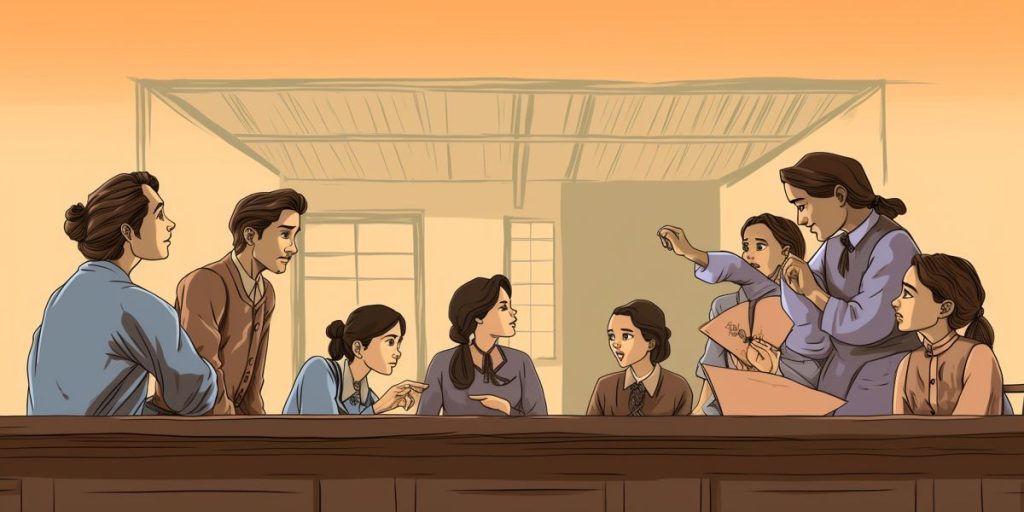The Council of Europe’s study on history education in Europe revealed that many Cypriot teachers feel constrained by state-mandated textbooks and exam-centric curricula, while also highlighting the importance of historical knowledge for cultivating analytical thinking and democratic participation. The study found that history teaching is diversifying, giving voice to previously marginalized perspectives, and that there are varying degrees of emphasis on European identity versus national pride across countries.
What are the key findings of the Council of Europe’s study on history education?
- A significant number of Cypriot teachers feel constrained by state-mandated textbooks and exam-centric curricula.
- Historical knowledge is vital for cultivating analytical thinking and active democratic participation.
- History teaching is diversifying, giving voice to previously marginalized perspectives.
- The study does not critique textbooks but suggests a future phase for their examination.
- There are varying degrees of emphasis on European identity versus national pride across countries.
- Curricula may not adequately cover diverse perspectives, particularly in Greece, Cyprus, and Ireland.
- Teachers’ interest in professional development varies, with some seeking more opportunities.
- Despite available seminars, many teachers do not frequently attend professional development events.
An Overview of the Council of Europe’s Landmark Study
In an unprecedented effort to examine the state of history education, the Observatory on History Teaching in Europe, an entity under the Council of Europe, embarked on a comprehensive study. This research engaged 6,500 history educators across 16 countries, unveiling a tapestry of challenges and insights into the teaching of history.
The Struggle of History Teachers in Cyprus
A striking discovery from the study highlighted that a significant portion of Cypriot history teachers find themselves in a bind. Between the constraints of state-mandated textbooks and exam-centric curricula, many educators feel they lack the latitude—and time—to venture into innovative teaching methods. This predicament reflects a broader tension between traditional educational structures and the evolving needs of contemporary classrooms.
The Role of History in Shaping Citizens
The Council of Europe emphasizes the importance of historical knowledge—not merely as a repository of dates and facts but as a cornerstone for cultivating analytical and critical thinking skills. Through a robust understanding of history, students are poised to become well-informed and active participants in democratic societies, navigating the complexities of various narratives with discernment.
The Dynamics of Diverse Narratives
As the study reveals, history is a vibrant and, at times, contentious domain. The democratization of historical narratives has fostered a multiplicity of perspectives, giving voice to groups that had previously been marginalized. This shift challenges the conventional accounts that have long underpinned national and European identities.
Textbooks Under Scrutiny
The report itself does not critique individual history textbooks. Its purpose lies elsewhere – to gauge the pulse of history teaching without imposing specific recommendations upon member states. However, the study suggests a future phase where textbooks will be examined to explore the varied portrayals of historical events.
A Pan-European Perspective on Identity
Interestingly, the survey indicates varying degrees of relevance attached to European identity versus national pride. In countries like Andorra, Portugal, and Luxembourg, there appears to be a stronger inclination towards European identity. Contrastingly, national pride takes precedence in Turkey and Armenia, as per the educators’ responses.
Addressing Diversity in the Curriculum
A hot-button issue that the study touches upon is the sufficiency with which curricula address diversity. A considerable number of teachers from Greece, Cyprus, and Ireland feel that the curriculum does not adequately cover diverse perspectives, including gender history—a sentiment particularly strong among Greek and Cypriot teachers.
The Need for Ongoing Professional Development
The report also sheds light on the appetite for professional development among history teachers, which varies widely between countries. While some express a lack of interest or time for further training, educators in countries such as Albania, Armenia, and France are eager for more opportunities, provided the costs are at least partially covered.
The State of Educational Reforms and Training
Despite claims from education authorities regarding a plethora of training seminars, findings suggest that many teachers do not frequently attend such events. Furthermore, the perception among experienced educators is that opportunities for professional development have not improved, and in some cases, have deteriorated.
Looking Ahead
The findings from this study not only shed light on the current state of history teaching in Europe but also set the stage for future explorations into how history education can be enhanced. By embracing the complexity of historical narratives and the professional needs of teachers, the path towards a more nuanced and engaging approach to history in schools becomes clearer.
Quick Recap
- A significant number of Cypriot teachers feel constrained by state-mandated textbooks and exam-centric curricula.
- Historical knowledge is vital for cultivating analytical thinking and active democratic participation.
- History teaching is diversifying, giving voice to previously marginalized perspectives.
- The study does not critique textbooks but suggests a future phase for their examination.
- There are varying degrees of emphasis on European identity versus national pride across countries.

